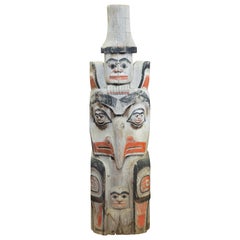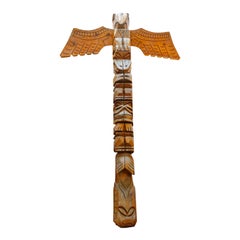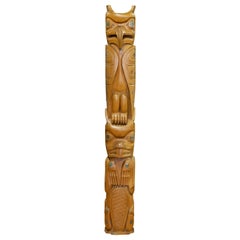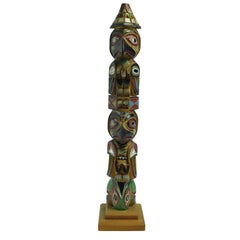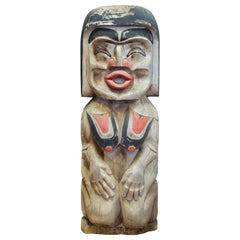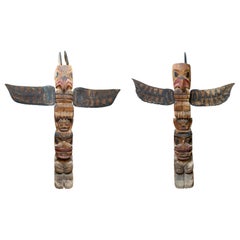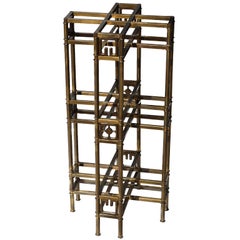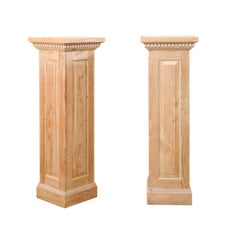Native American Building and Garden Elements
Native American broadly describes any Indigenous people in North America and encompasses hundreds of tribes and groups, all with distinct cultures. Native American–style furniture and decor likewise varies widely, from pieces created by Indigenous people to those appropriated by non-native designers.
Indigenous furniture’s rich heritage includes the bentwood boxes of the Northwest Coast carved from cedar for storing household or ceremonial objects. Generations of Native American people have made baskets for holding household items, with those in the Northeast using sweetgrass and those in the Southeast using pine needles and wicker. Artisans in the Plateau region wove watertight pieces like cradles from plant materials. Although these objects were intricately made, they were usually utilitarian rather than decorative.
The colonization of North America and the removal of Indigenous people from their lands led to the suppression of these practices. Many styles that used Native American motifs — such as Southwestern style, which was heavily influenced by the geometric patterns of Navajo textiles — have historically not involved Indigenous creators and, instead, have taken their traditions without their tribal context.
When decorating a home with Native American–style furniture, it is important to do so respectfully, by understanding the origins of motifs and objects and examining who profits from their sale. There are now Indigenous-led companies, such as Cherokee designer Cray Bauxmont-Flynn’s Amatoya and Totem House Design, promoting Indigenous work in furniture and home decor. Supporting Indigenous artists and artisans is essential to confronting the still pervasive issue of cultural appropriation in design.
Find a collection of Native American living room furniture, folk art, rugs and carpets, decorative objects and other items on 1stDibs.
Late 20th Century American Native American Building and Garden Elements
Cedar
Early 20th Century Canadian Native American Building and Garden Elements
Cedar
1950s American Vintage Native American Building and Garden Elements
Cedar
1950s American Vintage Native American Building and Garden Elements
Cedar
Late 20th Century American Native American Building and Garden Elements
Cedar
Late 20th Century American Native American Building and Garden Elements
Cedar
1930s American Vintage Native American Building and Garden Elements
Cedar
Early 1900s American Antique Native American Building and Garden Elements
Cedar
Early 1900s American Antique Native American Building and Garden Elements
Cedar
1930s Canadian Vintage Native American Building and Garden Elements
Cedar
1970s American Vintage Native American Building and Garden Elements
Brass
20th Century American Native American Building and Garden Elements
Wood
Mid-20th Century Canadian Native American Building and Garden Elements
Soapstone
Early 20th Century American Native American Building and Garden Elements
Multi-gemstone, Silver
Mid-20th Century Canadian Native American Building and Garden Elements
Wood
Early 20th Century Native American Building and Garden Elements
Wood
1990s American Native American Building and Garden Elements
Fur, Leather, Wood, Paint, Feathers
20th Century American Native American Building and Garden Elements
Wool
20th Century American Native American Building and Garden Elements
Leather, Wood, Paint
Mid-20th Century Canadian Native American Building and Garden Elements
Soapstone
20th Century American Native American Building and Garden Elements
Fur, Leather, Wood, Paint
20th Century American Native American Building and Garden Elements
Leather, Feathers, Wood, Paint
